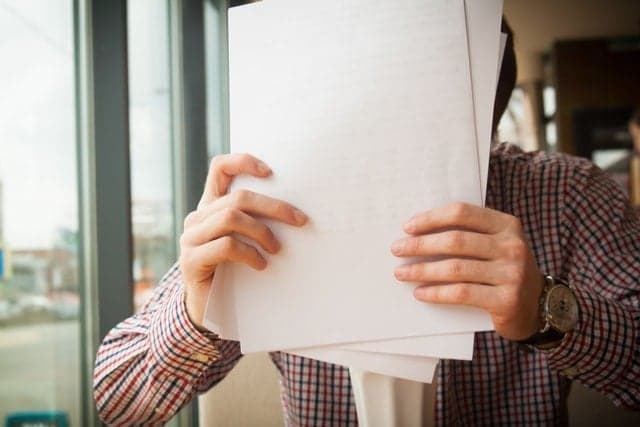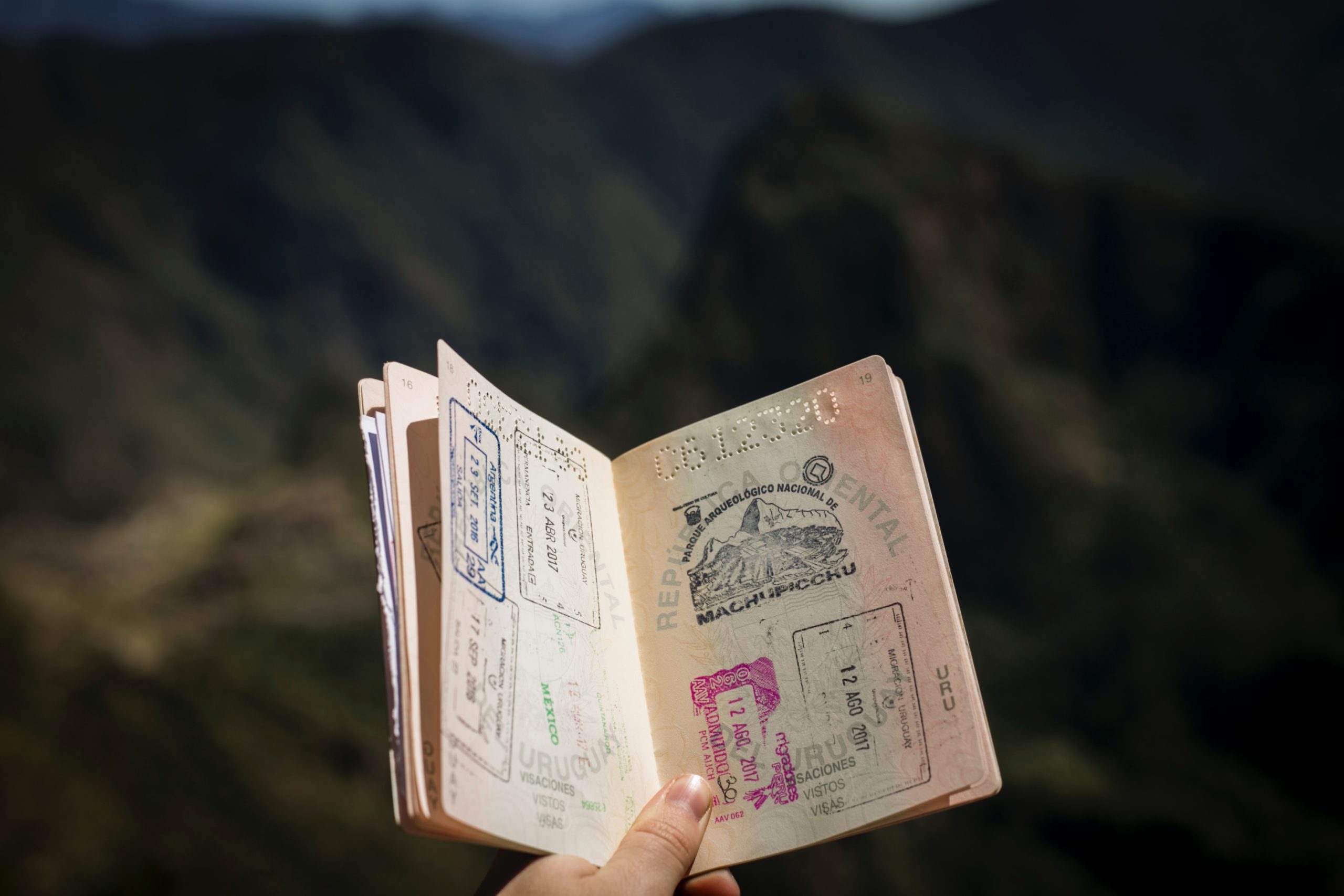Five essential documents you need when moving to Austria

Breathtakingly beautiful nature, cultural delights, and generally high-quality public services are guaranteed when you move to Austria. Unfortunately, so is a big pile of paperwork.
Austria is famously entangled in red tape, and there’s even more of it for foreign residents than for Austrians. If you're not an EU national, the bureaucracy is just that much more frustrating. While some processes are gradually being simplified and even moved online, it's still true that Austrian bureaucracy can push even the calmest, most collected person over the edge on occasion.
As Austria’s foreign residents tell us again and again though, in the end it's all worth it to be able to live, study, work or retire in one of the most beautiful and culturally rich countries in the world.
But that doesn't make it simple.
There are just a few key documents that you’ll really need when you first arrive. To help you get started, here’s a look at the very first things that should be on your to-do list as you plan your move.
Visa
Getting into the country at all is a good place to start.
If you come from anywhere outside the European Union, you may need to apply for a visa. There are different types of visa according to the reason for your visit.
Bear in mind you’ll need to do this while still in your home country, and make sure you apply in good time. The Austrian embassy in your country should be able to give you the details of the application process and requirements for the type of visa you need.
READ ALSO: How do I get a language study visa for Austria?

Nationals of certain countries don't need a visa to visit Austria. These people can often go straight to applying for a residence permit once they've already arrived.
Photo by Agus Dietrich on Unsplash
Austria's residence permit system, however, may mean that citizens of some countries, like the UK, US, or Canada - can travel to Austria visa-free for up to three months and go straight to applying for their residence permit while already in Austria. Any non-EU national (which of course now includes the UK) planning on staying in Austria for more than three months will need to apply for this permit, which we explain below. Unfortunately, this also means that nationals of countries which do require a visa to enter Austria will need both a visa and a residence permit - requiring much of the same paperwork.
Obviously, don't forget that the most important document you need for this is, of course, your passport. It sounds obvious, but make sure it is up to date and also that it’s valid for the duration of your stay in Austria, whether you’re staying six days or six months.
READ ALSO: How do I get a student visa for Austria and what does it let me do?
It’s also never a bad idea to make and keep printed and digital copies of your passport and visa in case they get lost or stolen. Getting these replaced in Austria would add significantly to your paperwork pile - not to mention the cost and stress.
Your registration certificate (Meldezettel)
Everyone who takes up residence in Austria - for any reason other than as a visiting tourist - will need to register their residence in Austria with their local authority within three days of moving in. This also applies to EU nationals and even to Austrians. If you move, you'll need to register again.
You'll need the signature of the owner of your residence, so either your landlord's or yours - if you own the place. Bring your passport, the signature, and the registration form to the appointment with your local authority and you'll get a registration certificate (Meldezettel) in exchange.
You'll need this for a host of things in Austria, including opening bank accounts. You'll also need to bring your Meldezettel with you to the appointment where you'll apply for your residence permit, so you'll need to have the residence registration appointment first.
IN DETAIL: How to get your Meldezettel in Austria
Residence permit
As mentioned above, any non-EU national staying in Austria for longer than three months will need to apply for a residence permit - regardless of whether they also needed a visa to enter Austria in the first place.
You do this at your relevant local authority's immigration office after you've already arrived in and taken up residence in Austria. In Vienna, this is the MA 35 office. You'll need a host of documents for this appointment, including passport photos, your passport, your Meldezettel as mentioned above, proof of health insurance and the €120 fee.
READ ALSO: 'Bring everything you have': Key tips for dealing with Vienna's immigration office MA 35
The type of residency permit you'll need obviously depends on your reason for being in Austria, with common ones being for work, study, or retirement. Retirement residence permits generally prohibit you from taking up work.

Austria is short of many skilled workers and there are a plethora of work permits available to those with needed qualifications. Photo by Ani Kolleshi on Unsplash
Meanwhile, work permits are divided into a host of categories, from standard work permits to Red-White-Red and EU Blue Cards for skilled workers. Even amongst the skilled worker permits, there are a host of categories - for example if you're an employee versus being an entrepreneur. You can read our previous coverage on these to try and discern which one you're going to need.
READ ALSO:
- Visas and residency permits: How to move to Austria and stay long-term
- COMPARED: Germany's Chancenkarte vs. Austria's Red-White-Red card for skilled non-EU workers
- EXPLAINED: How entrepreneurs can get Austria's 'Red-White-Red' card for skilled non-EU workers
- Germany or Austria: Where is it easier to get an EU Blue Card?
- COMPARED: How to get a visa to settle in either Germany or Austria for retirement
If your status in Austria changes - for example if you originally came to study in Austria but then managed to find a job after graduation - you'll need to apply again for the corresponding residence permit, unless you have permanent residence in Austria.
READ ALSO: How do I stay in Austria after graduating from an Austrian university?
Once you have your residence permit, you can use it as ID in Austria. Once you're in Austria for five years and can prove B1 level German, you become eligible for permanent residence, which grants you unrestricted access to the labour market. You won't need to convert your residence permit if your employment status changes once you have permanent residence.
READ ALSO:
- What's the difference between permanent residency and citizenship in Austria?
- Do foreigners have to carry ID in Austria?
Tax code
A Steuernummer (tax number) is a personal identification number similar to a Social Security number in the US or National Insurance number in the UK.
You'll likely need this number to start your job or to get yourself onto Austrian social insurance, whether for health or pension.
Once you're registered at your residence and have your Meldezettel, it's fairly easy to get. You can either request it in person from your local authority's tax office (Finanzamt) or apply for it online.
Health card
Austria has an excellent healthcare system relative to most countries in the world, funded by a social insurance model.
All residents of Austria, whether Austrians or foreign, must have public health insurance by law. You will also have to prove this when you apply for your residence permit.
About 82 percent of the country is insured through Österreichische Gesundheitskasse (ÖGK), the standard fund for most employees. Self-employed people generally go through SVS instead.
Residents of EU countries who are visiting Austria can also access urgent medical treatment with the European Health Insurance Card (EHIC), available via the healthcare system in your home country.
READ ALSO: Everything you need to know about the Austrian healthcare system
However, whether you have an EHIC or not, you should get on to Austrian health insurance if you intend to stay a while. Your employer can often answer any questions or even help you liaise directly with ÖGK
If you're self-employed, SVS maintains local offices around the country, where you can visit and apply.
READ ALSO: What I wish I knew before becoming 'new self-employed' in Austria
What next?
Once you've got these pieces of paperwork under your belt, there will be plenty more to come.
See The Local's essential guides to living in Austria for details on the next things you may need to check off your list, such as how to change over your driver's licence.
Comments (1)
See Also
Austria is famously entangled in red tape, and there’s even more of it for foreign residents than for Austrians. If you're not an EU national, the bureaucracy is just that much more frustrating. While some processes are gradually being simplified and even moved online, it's still true that Austrian bureaucracy can push even the calmest, most collected person over the edge on occasion.
As Austria’s foreign residents tell us again and again though, in the end it's all worth it to be able to live, study, work or retire in one of the most beautiful and culturally rich countries in the world.
But that doesn't make it simple.
There are just a few key documents that you’ll really need when you first arrive. To help you get started, here’s a look at the very first things that should be on your to-do list as you plan your move.
Visa
Getting into the country at all is a good place to start.
If you come from anywhere outside the European Union, you may need to apply for a visa. There are different types of visa according to the reason for your visit.
Bear in mind you’ll need to do this while still in your home country, and make sure you apply in good time. The Austrian embassy in your country should be able to give you the details of the application process and requirements for the type of visa you need.
READ ALSO: How do I get a language study visa for Austria?

Photo by Agus Dietrich on Unsplash
Austria's residence permit system, however, may mean that citizens of some countries, like the UK, US, or Canada - can travel to Austria visa-free for up to three months and go straight to applying for their residence permit while already in Austria. Any non-EU national (which of course now includes the UK) planning on staying in Austria for more than three months will need to apply for this permit, which we explain below. Unfortunately, this also means that nationals of countries which do require a visa to enter Austria will need both a visa and a residence permit - requiring much of the same paperwork.
Obviously, don't forget that the most important document you need for this is, of course, your passport. It sounds obvious, but make sure it is up to date and also that it’s valid for the duration of your stay in Austria, whether you’re staying six days or six months.
READ ALSO: How do I get a student visa for Austria and what does it let me do?
It’s also never a bad idea to make and keep printed and digital copies of your passport and visa in case they get lost or stolen. Getting these replaced in Austria would add significantly to your paperwork pile - not to mention the cost and stress.
Your registration certificate (Meldezettel)
Everyone who takes up residence in Austria - for any reason other than as a visiting tourist - will need to register their residence in Austria with their local authority within three days of moving in. This also applies to EU nationals and even to Austrians. If you move, you'll need to register again.
You'll need the signature of the owner of your residence, so either your landlord's or yours - if you own the place. Bring your passport, the signature, and the registration form to the appointment with your local authority and you'll get a registration certificate (Meldezettel) in exchange.
You'll need this for a host of things in Austria, including opening bank accounts. You'll also need to bring your Meldezettel with you to the appointment where you'll apply for your residence permit, so you'll need to have the residence registration appointment first.
IN DETAIL: How to get your Meldezettel in Austria
Residence permit
As mentioned above, any non-EU national staying in Austria for longer than three months will need to apply for a residence permit - regardless of whether they also needed a visa to enter Austria in the first place.
You do this at your relevant local authority's immigration office after you've already arrived in and taken up residence in Austria. In Vienna, this is the MA 35 office. You'll need a host of documents for this appointment, including passport photos, your passport, your Meldezettel as mentioned above, proof of health insurance and the €120 fee.
READ ALSO: 'Bring everything you have': Key tips for dealing with Vienna's immigration office MA 35
The type of residency permit you'll need obviously depends on your reason for being in Austria, with common ones being for work, study, or retirement. Retirement residence permits generally prohibit you from taking up work.

Meanwhile, work permits are divided into a host of categories, from standard work permits to Red-White-Red and EU Blue Cards for skilled workers. Even amongst the skilled worker permits, there are a host of categories - for example if you're an employee versus being an entrepreneur. You can read our previous coverage on these to try and discern which one you're going to need.
READ ALSO:
- Visas and residency permits: How to move to Austria and stay long-term
- COMPARED: Germany's Chancenkarte vs. Austria's Red-White-Red card for skilled non-EU workers
- EXPLAINED: How entrepreneurs can get Austria's 'Red-White-Red' card for skilled non-EU workers
- Germany or Austria: Where is it easier to get an EU Blue Card?
- COMPARED: How to get a visa to settle in either Germany or Austria for retirement
If your status in Austria changes - for example if you originally came to study in Austria but then managed to find a job after graduation - you'll need to apply again for the corresponding residence permit, unless you have permanent residence in Austria.
READ ALSO: How do I stay in Austria after graduating from an Austrian university?
Once you have your residence permit, you can use it as ID in Austria. Once you're in Austria for five years and can prove B1 level German, you become eligible for permanent residence, which grants you unrestricted access to the labour market. You won't need to convert your residence permit if your employment status changes once you have permanent residence.
READ ALSO:
- What's the difference between permanent residency and citizenship in Austria?
- Do foreigners have to carry ID in Austria?
Tax code
A Steuernummer (tax number) is a personal identification number similar to a Social Security number in the US or National Insurance number in the UK.
You'll likely need this number to start your job or to get yourself onto Austrian social insurance, whether for health or pension.
Once you're registered at your residence and have your Meldezettel, it's fairly easy to get. You can either request it in person from your local authority's tax office (Finanzamt) or apply for it online.
Health card
Austria has an excellent healthcare system relative to most countries in the world, funded by a social insurance model.
All residents of Austria, whether Austrians or foreign, must have public health insurance by law. You will also have to prove this when you apply for your residence permit.
About 82 percent of the country is insured through Österreichische Gesundheitskasse (ÖGK), the standard fund for most employees. Self-employed people generally go through SVS instead.
Residents of EU countries who are visiting Austria can also access urgent medical treatment with the European Health Insurance Card (EHIC), available via the healthcare system in your home country.
READ ALSO: Everything you need to know about the Austrian healthcare system
However, whether you have an EHIC or not, you should get on to Austrian health insurance if you intend to stay a while. Your employer can often answer any questions or even help you liaise directly with ÖGK
If you're self-employed, SVS maintains local offices around the country, where you can visit and apply.
READ ALSO: What I wish I knew before becoming 'new self-employed' in Austria
What next?
Once you've got these pieces of paperwork under your belt, there will be plenty more to come.
See The Local's essential guides to living in Austria for details on the next things you may need to check off your list, such as how to change over your driver's licence.
Join the conversation in our comments section below. Share your own views and experience and if you have a question or suggestion for our journalists then email us at [email protected].
Please keep comments civil, constructive and on topic – and make sure to read our terms of use before getting involved.
Please log in here to leave a comment.